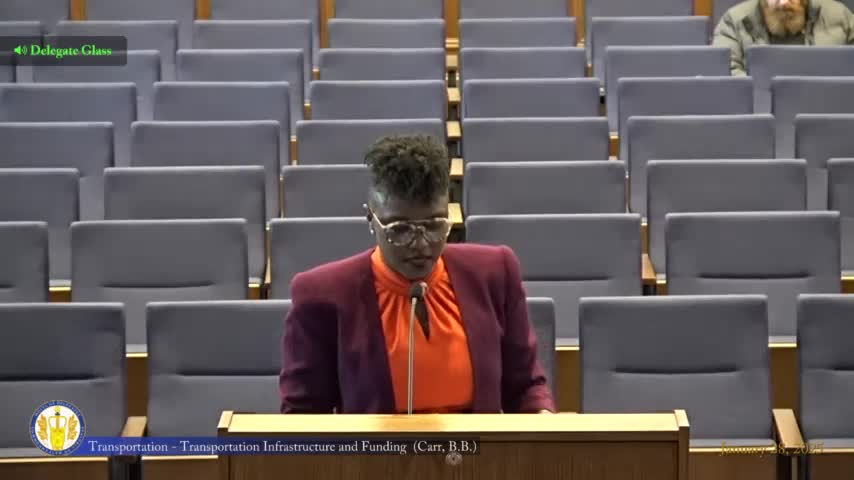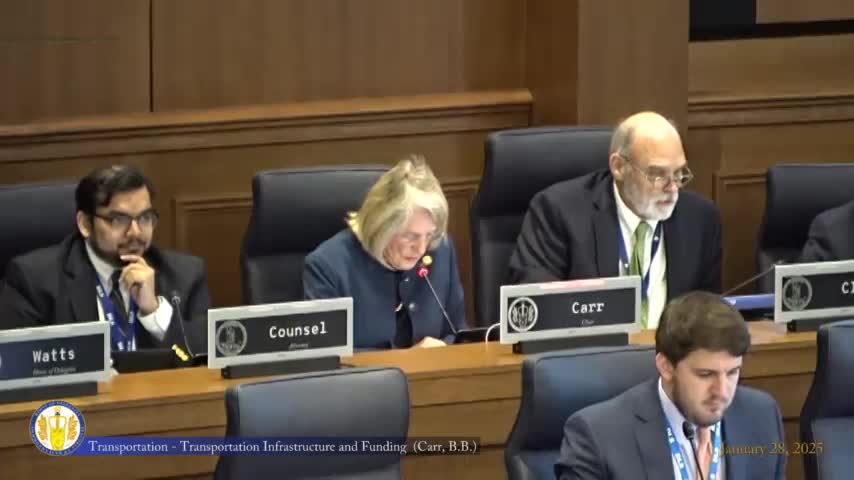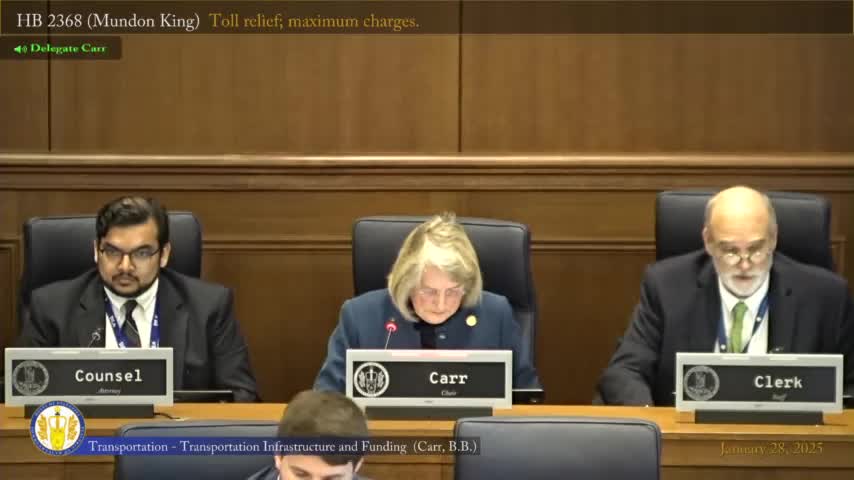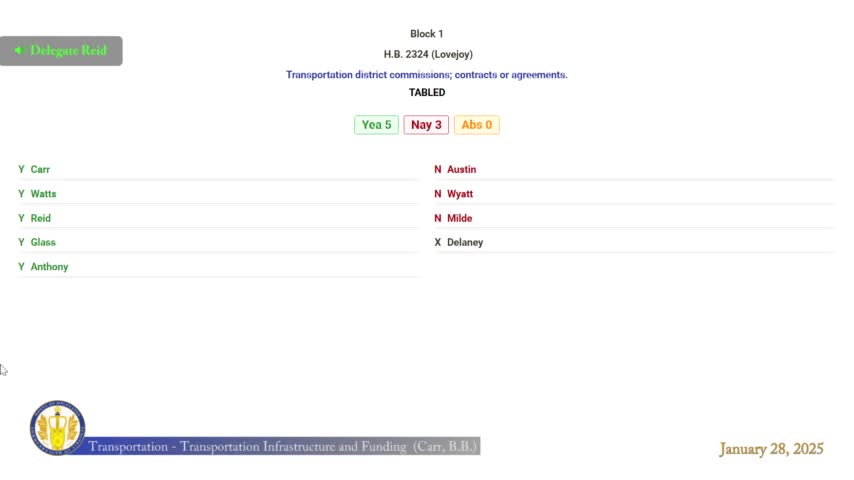Article not found
This article is no longer available. But don't worry—we've gathered other articles that discuss the same topic.

Panel advances Hampton Roads resiliency and roads bill after substitute; funding option removed

Committee tables bill on VDOT authority to remove invasive "tree of heaven" from rights of way

Panel unanimously reports bill adding Central Virginia Transportation Authority to liability protections

Committee refers Virginia toll‑cap bill to appropriations after fiscal concerns

